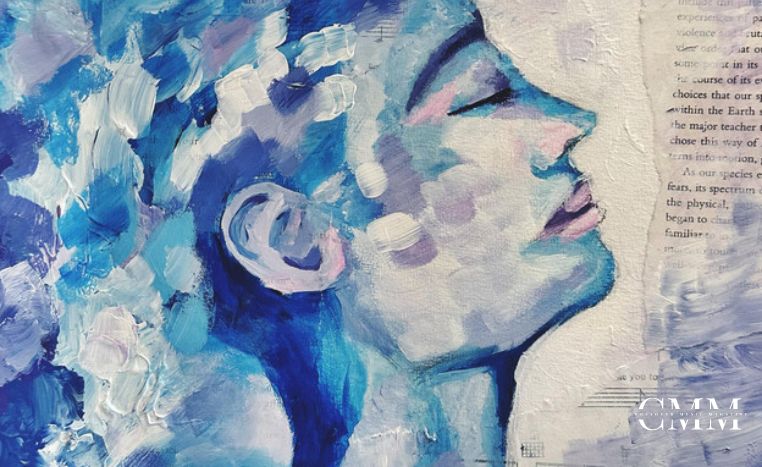By Star Russell
The song comes from a reimagining of the world and the eternity that prevails, yet one which we will be too far buried in soil to see. The song represents so much of how humanity eventually turns into dust and sinks into deep waters of the ocean.
It focuses on a girl waiting, yet the profundity of the subtext is how she questions absolutely everything while she waits.
Contemporary opera and Classical Crossover
The piece is very personal to me as an art form, defined as opera in the 16th century 1, and about which I am very passionate, something that is losing funding and support in the UK faster than any other art form. There are many artists at the forefront of creating cutting and innovative art who have greatly inspired me. I have been fortunate to be coached by Andrew Mathews-Owen, a profound musician, who has been greatly acknowledged by various contemporary artists for his skills, one of whom is Charlotte Bray, a huge inspiration to me. Her exceptional compositions have delicate melodic lines and the story telling at the forefront of her music is very heartfelt and emotionally empowering.
With everything in life, change is imperative and is natural. Personally, I believe that Classical Crossover is a fantastic way to integrate classical music for varying new audiences. I often find myself at a wedding or at an event singing something more accessible to the audience than an Italian aria.
The Creative Process
What I find incredible is how for centuries human beings have been writing music from the comfort of their homes, institutions or even outside in nature. We all have different things that inspire us, yet my personal touch is composing whilst on different modes of transport.
Often I find myself busy on a train, writing lyrics, thinking of melodies and imagining chords on a page. I also find the moon most breathtaking and a significant influence. The moon connects me to my family who live on the opposite side of the world in South Africa and it connects me to the composers who I aspire to emulate. These same composers also looked to the moon for light in a world filled with darkness and cruelty.
Additionally in a world which is rapidly changing and, in a place, where I believe opera needs to stay at the forefront of music, writing something in English was part of the accessibility element of the song. At the core of my beliefs, education is where classical music and classical crossovers need to be introduced.
As artists we are always on a path to grow and learn and to challenge society. These challenges now feel exponential, and I will spend every day of my life contributing in any way shape or form to the future of opera, the future of classical music, classical crossover and remembering the power of music.
The incredible accompaniment was by the lovely Yuri Inoshita, a truly brilliant pianist. There was something magical about finally hearing her play the accompaniment and hearing it come to life. In a studio setting I think the possibilities to keep recording something for a different outcome are endless yet I wanted this to be a more raw and honest approach. I would not be the musician I am, with a fire burning inside of me, if I did not have the support from my singing teacher Neil Baker. In an artist’s life we are met with unwavering glimmers of hope simultaneous to endless rejections and without that one person who believes in you, I think it can be a very lonely path.
Reference 1: (Brown, Howard Mayer, Ellen Rosand, Reinhard Strohm, Michel Noiray, Roger Parker, Arnold Whittall, Roger Savage, and Barry Millington. “Opera (i).” Grove Music Online. 2001; Accessed 6 Apr. 2024. https://www.oxfordmusiconline.com/grovemusic/view/10.1093/gmo/9781561592630.001.0001/omo-9781561592630-e-0000040726.)







